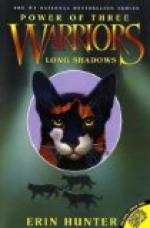So Flora went to see what Mama Joy wanted, and Billy hurried somewhat guiltily out to find what was the matter with the gray horse, and practical affairs once more took control.
After that, Billy considered himself an engaged young man. He went back to his ditty and inquired frequently:
“Can she make a punkin pie, Billy boy, Billy Boy?”
and was very nearly the old, care-free Charming Billy of the line-camp. It is true that Mama Joy recovered disconcertingly that afternoon, and became once more ubiquitous, but Billy felt that nothing could cheat him of his joy, and remained cheerful under difficulties. He could exchange glances of much secret understanding with Flora, and he could snatch a hasty kiss, now and then, and when the chaperonage was too unremitting she could slip into his hands a hurriedly penciled note, filled with important nothings. Which made a bright spot in his life and kept Flora from thinking altogether of her father and fretting for some news of him.
Still, there were other things to worry him and to keep him from forgetting that the law of nature, which he had before defined to his own satisfaction, still governed the game. Storm followed storm with a monotonous regularity that was, to say the least, depressing, though to be sure there had been other winters like this, and not even Billy could claim that Nature was especially malignant.
But with Brown’s new fence stretching for miles to the south and east of the open range near home, the drifting cattle brought up against it during the blinding blizzards and huddled there, freezing in the open, or else plodded stolidly along beside it until some washout or coulee too deep for crossing barred their way, so that the huddling and freezing was at best merely postponed. Billy, being quite alive to the exigencies of the matter, rode and rode, and with him rode Dill and the other two men when they had the leisure—which was not often, since the storms made much “shoveling” of hay necessary if they would keep the calves from dying by the dozen. They pushed the cattle away from the fences—to speak figuratively and colloquially—and drove them back to the open range until the next storm or cold north wind came and compelled them to repeat the process.
If Billy had had unlimited opportunity for lovemaking, he would not have had the time, for he spent hours in the saddle every day, unless the storm was too bitter for even him to face. There was the line-camp with which to keep in touch; he must ride often to the Bridger place—or he thought he must—to see how they were getting on. It worried him to see how large the “hospital bunch” was growing, and to see how many dark little mounds dotted the hollows, except when a new-fallen blanket of snow made them white—the carcasses of the calves that had “laid ’em down” already.
“Yuh ain’t feeding heavy enough, boys,” he told them once, before he quite realized how hard the weather was for stock.




